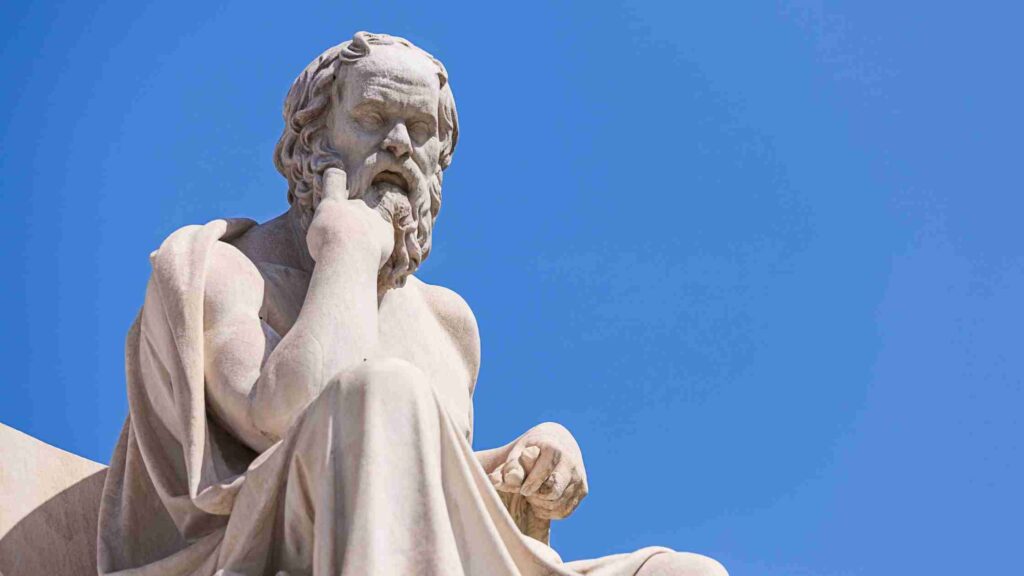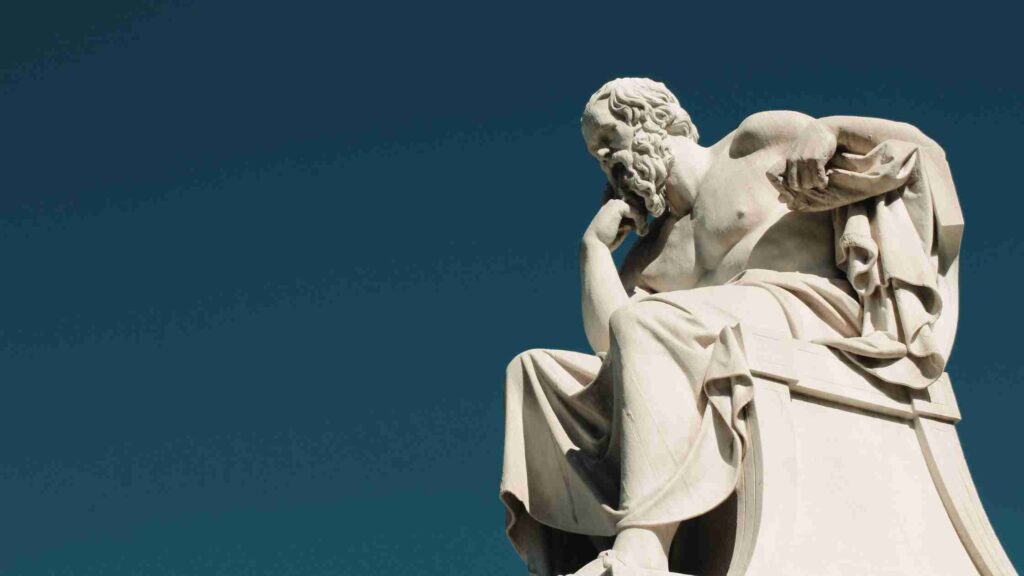As someone who is deeply interested in philosophy, I find myself drawn to the life and teachings of Socrates. His legacy looms large in the world of philosophy, and his tragic demise has played a significant role in shaping how we understand his life and work. In this article, I will explore the profound legacy of Socrates in light of his death, examining the historical context of his execution, the significance of his teachings, and the enduring impact of his philosophy.

Introduction to Socrates and His Legacy
Socrates was a philosopher who lived in Athens during the 5th century BCE. He is widely regarded as one of the most influential thinkers in the Western philosophical tradition, and his ideas continue to inspire and challenge us to this day. Socrates was known for his method of questioning, known as the Socratic method, which he used to challenge his fellow Athenians to think more deeply about their beliefs and assumptions.
Socrates did not leave behind any written works, and much of what we know about him comes from the writings of his followers, such as Plato and Xenophon. Despite this, Socrates’ impact on philosophy has been enormous, and his ideas continue to be studied and debated by scholars around the world.
The Death of Socrates – Historical Context and Events
Socrates’ death came at a turbulent time in Athenian history. Athens had recently lost the Peloponnesian War to Sparta, and the city was in a state of political and social upheaval. Socrates had made many enemies over the years with his questioning and challenging of Athenian beliefs and traditions, and he was seen by some as a corrupting influence on the youth of Athens.
In 399 BCE, Socrates was brought to trial on charges of impiety and corrupting the youth. He was found guilty and sentenced to death by hemlock poisoning. Socrates’ death was a significant event in Athenian history, and it would go on to have a profound impact on the development of philosophy.
The Significance of Socrates’ Death in Philosophical Discourse
Socrates’ death has been the subject of much philosophical debate over the centuries. Some have argued that Socrates’ death was a tragic loss for philosophy, while others have viewed it as a necessary sacrifice for the greater good of Athenian society. Regardless of one’s perspective, it is clear that Socrates’ death played a significant role in shaping the development of philosophy in the centuries that followed.
Socrates’ death forced his followers to grapple with difficult questions about the nature of justice, the role of the individual in society, and the relationship between the individual and the state. These questions continue to be at the heart of philosophical discourse today, and Socrates’ ideas continue to be studied and debated by scholars around the world.
Socrates’ Teachings and Their Enduring Influence
Socrates’ teachings were centered around the idea of self-knowledge and the pursuit of truth. He believed that the only way to live a truly fulfilling life was to understand oneself and one’s place in the world. Socrates’ emphasis on self-knowledge has had a profound impact on Western philosophy, and it continues to be a central theme in philosophical discussions to this day.
Socrates’ philosophy also emphasized the importance of virtue and morality. He believed that living a virtuous life was essential to achieving happiness and fulfillment. Socrates’ ideas about virtue and morality have influenced the development of Western ethics, and they continue to be studied and debated by philosophers around the world.
The Impact of Socrates’ Death on His Followers
Socrates’ death was a devastating blow to his followers, who were left to grapple with the loss of their beloved teacher and mentor. Many of Socrates’ followers, such as Plato and Xenophon, went on to become influential philosophers in their own right, and they continued to develop and refine Socrates’ ideas in the years that followed.
Socrates’ death also had a significant impact on the development of Western philosophy. His death forced his followers to confront difficult questions about the nature of justice, the relationship between the individual and the state, and the role of philosophy in society. These questions continue to be at the heart of philosophical discourse today, and they have been shaped in profound ways by Socrates’ death.
The Trial of Socrates and Its Implications for Athenian Society
The trial of Socrates was a significant event in Athenian history, and it had far-reaching implications for Athenian society. Socrates was accused of impiety and corrupting the youth, charges that were rooted in the deep-seated cultural and political tensions of the time.
The trial of Socrates raised important questions about the relationship between the individual and the state, and it forced Athenians to confront difficult questions about the nature of justice and the role of law in society. The trial also highlighted the limitations of Athenian democracy and the dangers of mob rule.
The Philosophical Themes Explored in Socrates’ Final Dialogues
Socrates’ final dialogues, such as the Phaedo and the Crito, are some of the most profound philosophical works in Western literature. These dialogues explore a range of philosophical themes, including the nature of the soul, the relationship between the individual and the state, and the role of philosophy in society.
In the Phaedo, Socrates discusses the nature of the soul and the afterlife, arguing that the soul is immortal and that death is nothing to be feared. In the Crito, Socrates discusses the relationship between the individual and the state, arguing that one has a moral obligation to obey the laws of the state, even if one disagrees with them.
The Portrayal of Socrates’ Death in Art and Literature
Socrates’ death has been the subject of countless works of art and literature over the centuries. From Plato’s dialogues to Jacques-Louis David’s famous painting “The Death of Socrates,” Socrates’ death has been portrayed in a variety of ways by artists and writers throughout history.
These portrayals of Socrates’ death have helped to shape our understanding of his life and legacy, and they have played an important role in keeping his ideas alive in popular culture. Through these works of art and literature, Socrates’ legacy has been preserved and passed down to future generations.
Socrates’ Legacy and Its Relevance in Modern Society
Socrates’ legacy continues to be felt in modern society, particularly in the fields of philosophy and education. His emphasis on self-knowledge and the pursuit of truth has had a profound impact on Western philosophy, and his ideas continue to be studied and debated by scholars around the world.
Socrates’ legacy has also had a significant impact on the field of education. His emphasis on questioning and critical thinking has influenced the development of modern educational theory, and his ideas continue to be taught in classrooms around the world.

Conclusion: Reflecting on the Profound Legacy of Socrates Through His Tragic Demise
Socrates’ death was a tragic event, but it has had a profound impact on the development of Western philosophy and culture. His ideas continue to be studied and debated by scholars around the world, and his legacy continues to be felt in fields as diverse as philosophy, education, and art.
Through his teaching and his death, Socrates challenged us to think more deeply about our beliefs and assumptions, and he encouraged us to pursue truth and self-knowledge above all else. His legacy continues to inspire and challenge us to this day, and it serves as a reminder of the enduring power of philosophy and the human spirit.

CTA
Reflecting on Socrates’ profound legacy can be a powerful exercise in critical thinking and self-reflection. Whether you are a student of philosophy or simply someone who is interested in exploring the deeper questions of life, Socrates’ teachings and his tragic demise offer a wealth of insights and ideas to ponder. So take some time to reflect on the legacy of this great philosopher, and see what wisdom you can glean from his life and work.






